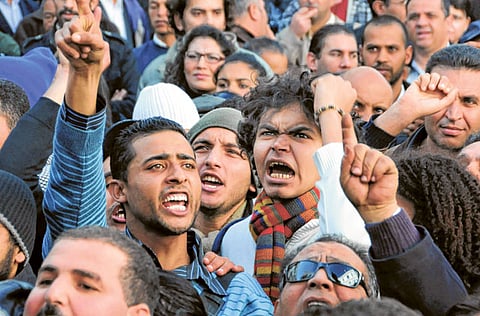Tunisia unrest reflects a larger problem
Arab world needs comprehensive reform packages to deal with socio-economic issues

The unrest in Tunisia cannot, and must not, be looked at as an isolated case. The ongoing clashes between the security forces and angry young people, described by the international media as "frustrated", can happen in any place in any Arab country that suffers from underdevelopment and high unemployment.
Sure, the lack of political and social reforms in some parts of the Arab world aggravates the problem. But the rising prices of basic commodities and the failure of some states to create job opportunities and provide decent living standards is at the core of the problem facing Tunisia and other countries such as Algeria which also recently witnessed similar protests. Lebanon and Egypt too have seen protests for the same reasons over the past few months.
More than 60 per cent of the population in the Arab world is under 25. And according to the International Monetary Fund, the Middle East needs to create more than 18 million jobs over the next decade to reduce the region's high unemployment.
Official unemployment rates are put by governments at about 10 per cent in most Arab countries, but economists say the true level of joblessness is much higher among the young, exceeding 40 per cent in some cases.
The fallout of the financial crisis affected most Arab countries and slowed business activities, leading to the redundancy of a massive number of workers. Also, dependence on the ‘old' economy in some Arab countries made it difficult for those countries to create jobs as the world increasingly adopts new means of economic production.
The failure of some societies to retrain those who lost jobs in the transition to the new economy led to the frustration of those young men and, in some cases, sent then into the welcoming hands of extremist groups.
The solution is not as simple as the analysis, though. It needs comprehensive reform packages that deal with unemployment and social and econ-omic evolution, lack of political development and the stagnant level of education. These are complex issues that must be addressed as a national priority in all Arab states.
Sign up for the Daily Briefing
Get the latest news and updates straight to your inbox



